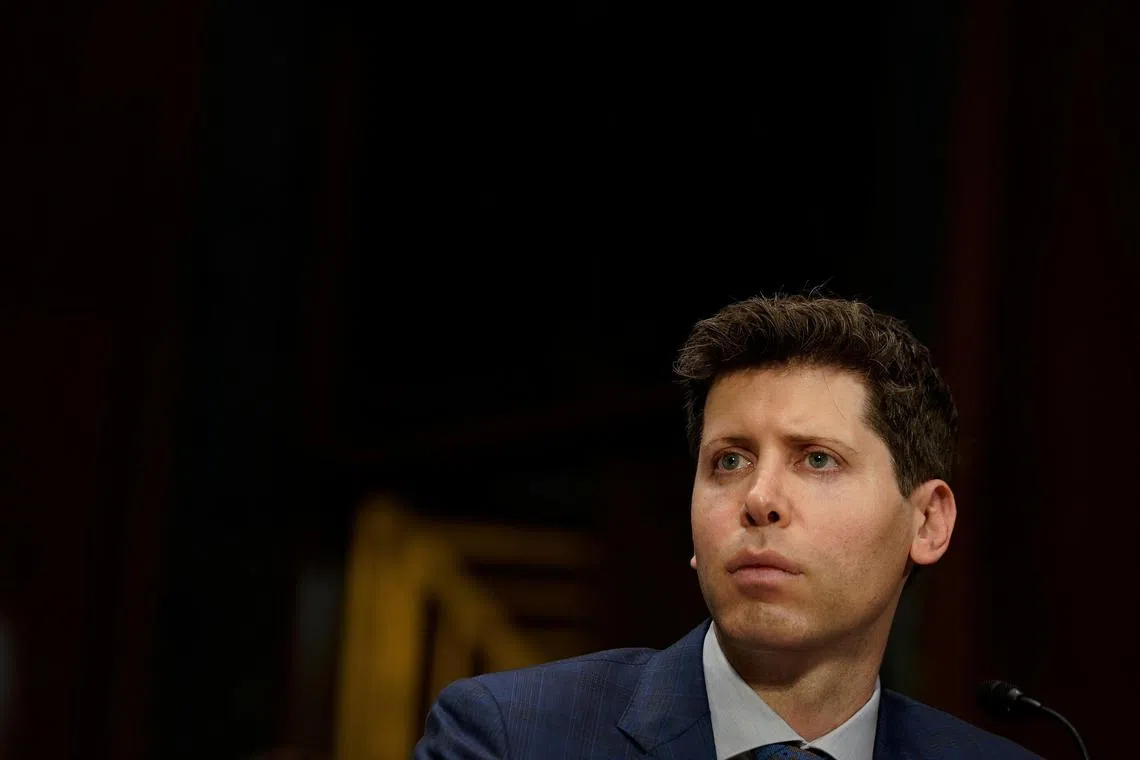G-7 calls for developing global technical standards for artificial intelligence
Sign up now: Get ST's newsletters delivered to your inbox

OpenAI CEO Sam Altman has told lawmakers that the US should consider licensing and testing requirements for AI models.
PHOTO: REUTERS
TOKYO – Leaders of the Group of Seven (G-7) nations on Saturday called for the development and adoption of technical standards to keep artificial intelligence (AI) “trustworthy”, saying governance of the technology has not kept pace with its growth.
While the G-7 leaders, meeting in Hiroshima, Japan, recognised that the approaches to achieving “the common vision and goal of trustworthy AI may vary”, they said in a statement the rules for digital technologies like AI should be “in line with our shared democratic values”.
The agreement came after the European Union, which participates in the G-7, inched closer in May to passing legislation to regulate AI technology,
“We want AI systems to be accurate, reliable, safe and non-discriminatory, regardless of their origin,” European Commission President Ursula von der Leyen said on Friday.
The G-7 leaders said they “need to immediately take stock of the opportunities and challenges of generative AI”, a subset of the technology popularised by the ChatGPT app.
OpenAI’s ChatGPT pushed billionaire Elon Musk and a group of AI experts to raise an alarm in March calling for a six-month pause
A month later, EU lawmakers urged world leaders to find ways to control AI technologies,
The United States so far has taken a cautious approach on governing AI, with President Joe Biden in April saying it remained to be seen whether AI is dangerous.
Mr Sam Altman, chief executive of Microsoft-backed OpenAI, told a Senate panel on Tuesday that the US should consider licensing and testing requirements for development of AI models.
Japan, the G-7 chair for 2023, has been even more accommodative, pledging support for public and industrial adoption of AI while monitoring its risks.
“It’s important to properly deal with both the potentials and risks,” Prime Minister Fumio Kishida told the government’s AI council last week.
The Western nations’ differing approaches to AI are in contrast to China’s restrictive policy. Its cyberspace regulator in April unveiled draft measures to align generative AI-powered services with the country’s core socialist values.
While acknowledging differences on how AI should be regulated, the G-7 leaders agreed on Friday to create a ministerial forum dubbed the “Hiroshima AI process”
The leaders also urged international organisations such as the Organisation for Economic Cooperation and Development to consider an analysis on the impact of policy developments.
The summit followed a G-7 Digital Ministers’ meeting in April, where its members – Britain, Canada, France, Germany, Italy, Japan, the US and the EU – said they should adopt “risk-based” AI rules.
The EU and US are also expected to exchange views on the emerging technologies at the Trade and Technology Council in Sweden on May 30-31. REUTERS


